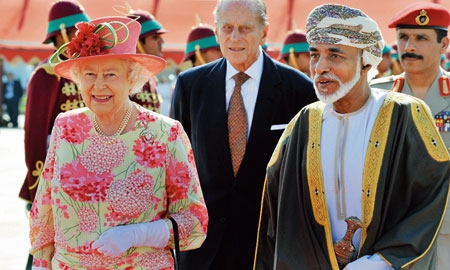A strategically advantageous location at the mouth of the Arabian Gulf has made Oman a stalwart of maritime trade for centuries. Its close relationship with the sea and its extensive knowledge of seamanship are symbolised by fleets of dhows, the country’s distinctive ancient ships. So it is little wonder that a nation of such renowned seafaring tradition is currently in the process of transforming its Port of Duqm into one of the largest maritime hubs in the Middle East as part of a vision to redefine its economic future.
The multibillion-dollar Duqm project – along with new airports, economic zones and other infrastructure developments – form part of a concerted national push to pivot the sultanate’s economic base away from its current heavy reliance on revenues generated by its relatively modest oil and gas reserves, the astute management of which has served it well over the past four decades. Hydrocarbon revenues and ongoing economic and social reforms have led to Oman being commended as the nation that has made the greatest improvements in its quality of life indices worldwide over the past 40 years, according to a 2010 report by the United Nations Development Programme (UNDP).
After coming to power in 1970, His Majesty Sultan Qaboos bin Said opened up the country and embarked on various economic reforms and boosted social spending. “His Majesty had a vision to use the revenues from oil to benefit the lives of the people, particularly with regard to education,” comments Nasser bin Khamis Al Jashmi, Undersecretary at the Ministry of Finance and Chairman of Oman Oil Company. As such, Oman’s oil revenues have been consistently invested back into the nation and its infrastructure, particularly roads, schools, hospitals and utilities.
Although not immune to the influence of political dissent in the region, Oman has so far not experienced the violence that has destabilised some of its neighbours. During the Arab Spring, disturbances and protests took place mainly in Sohar and the capital Muscat, but were distinctly low-key and sporadic compared to elsewhere in the Arab world. His Majesty announced a combination of wage and cost-of-living reforms and increases in welfare spending, which – along with continued calm at home and violence blighting other countries in the region – led to a continuation of the nation’s political and social compact.
Consequently, public investment increased and the 2013 social spending budget of 12.9 billion rials (£21 billion) was the largest ever – by 29 per cent – and targeted education, social security and healthcare. Increased salaries and at least 20,000 new government jobs were promised last year. The sultanate, however, is also encouraging the private sector to participate in raising socioeconomic standards for Omanis by striking public-private partnerships (PPPs) and enhancing the environment for small and medium-sized enterprises (SMEs). Both areas have been recognised as vital to Oman’s future, with both also ripe for involvement by British firms interested in maximising the close relationship a historic ally in the region can offer.
A centuries-old heritage of trade across land and sea is reflected in the Omani ability to negotiate and maintain solid relations overseas. Oman and the UK have enjoyed close relations, both politically and commercially, for more than 350 years, signing friendship treaties in 1798, 1800, 1891 and 1951.
Today, relations between the two nations have never been stronger. The UK is the biggest foreign investor in Oman and political leaders on both sides are calling for the private sector to further tighten bilateral trade links. “With Oman the beauty of the relationship is the network of relations of every type and every level across society,” says the British Ambassador to Oman, Jamie Bowden. “You’ve got on a personal level a very warm relationship between His Majesty Sultan Qaboos bin Said and Her Majesty the Queen. You also have very tight commercial relations between businesses and business people; you’ve got a large number of Omanis who studied in the UK and many more who lived in the UK for other reasons and have built a network of personal friendships with people in the UK.”
Oman’s diplomatic nous and importance as a regional ally is demonstrated by its maintenance of diplomatic relations with Iran. His Majesty lobbied the Iranians on behalf of the United States to release a detained American journalist, and eventually pardon three young hikers who were accused of spying in 2009.
According to the UKTI, strengths of the Omani market include: an open economy; no personal income tax; full repatriation of capital, net profit and royalties; English is widely spoken; and good air connectivity to all major cities. It also highlights the solidity of its financial system – and limited exposure to the recent global crisis – as a major plus point.
“The medium-term outlook on Oman remains highly positive,” says Hamood Sangour Al Zadjali, Executive President at the Central Bank of Oman (CBO). “Oman’s savings and investment as share of GDP has increased significantly in recent years. The country has a fairly well developed physical infrastructure that continues to witness rapid expansion and improvement. Oman’s banking system is sound and efficient, mainly due to appropriate regulatory and supervisory framework adopted by the CBO. Oman has emerged as an attractive destination for foreign investment due to its stability, amenable investment climate and a unique geographical location, in addition to various incentives offered by the government.”

0 COMMENTS